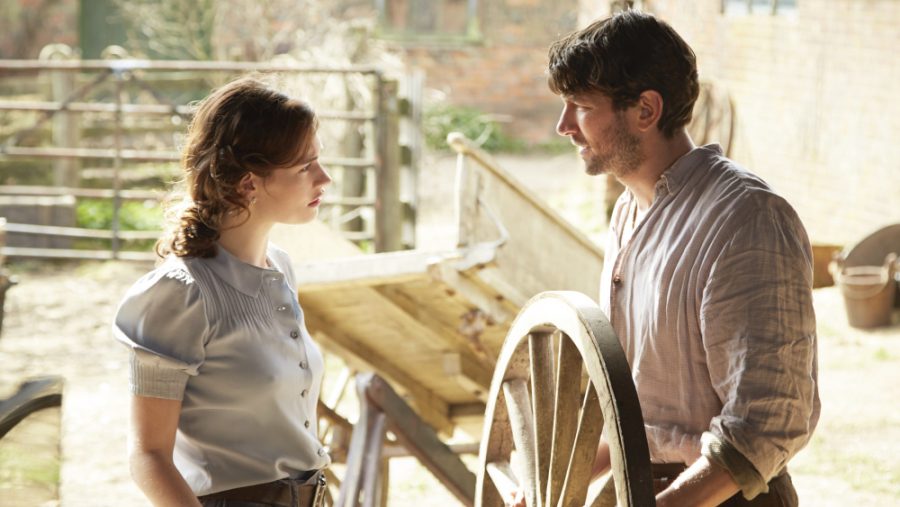The second most endearing thing about The Guernsey Literary And Potato Peel Society (apart from its very out there title), is its troubled heroine Miss Ashton, who always seems conflicted about her life. She has found success, but it isn’t the sort that seems to make her insides glow. There are two men vying for her hand – a blonde American GI who sends her flowers and a broody Guernsey shepherd with formidable taste in literature. It’s obvious right from the start where her affections lie and what her emotional problems are. However, director Mike Newell doesn’t want a heroine who knows exactly what troubles her. How, then, will we get to that all-important pay off?
In isolated Guernsey lies her salvation. And, it is to Guernsey that she goes, in search of the human connection that has evaded her since the death of her parents. Newell glosses over the war and its aftermath in an attempt to, perhaps, reflect human ability to soldier on like nothing happened. This helps maintain the film’s light-hearted tone. The only things weighing the story down are Ashton’s personal tragedies and the obvious troubles of an island condemned to eating potato pie.
Guernsey is predictably picturesque – a quaint British balm for the soul. But, there’s intrigue here as well. And, Ashton is eventually persuaded to stay on longer.
Crafting a romance in the backdrop of German Occupation is no easy task. Despite Newell’s decision to keep the miseries of war at bay, it is precisely this aspect that anchors the film and gives it its roots. There’s a curious kind of sadness that pulls at the movie. Exotic locales and happy children vie for the frame alongside a charred wooden cross. The people are a resilient lot, though, and that British spirit to keep calm and move on is never more visible than it is at the time when the island’s children are sent away to protect them from German occupation.
Ashton has a sharp nose for a story and it leads her to the society. Amelia (a superlative Penelope Wilton) is distraught at the prospect. The others in the group aren’t too thrilled, either. Which only eggs her on to find everything she can and try to get their story into the London Times.
Recommended
Sometimes, Ashton’s motivations and her reckless disregard for the emotions of others (the little people) does seem to hint at a privileged/entitled attitude. She imagines that her benevolence at writing a story about the society will be met with approval. When it isn’t, Ashton doesn’t seem to know how to handle it. She is once again, conflicted. Does she go about her job? Does she abandon her moral fibre in favour of the need to pen an interesting story?
Essentially, the conflicts in her professional life mirror those in her private one. The easy option is for her to settle down with Mark (Glen Powell), and continue to profit off the kind of work that doesn’t inspire her. Tougher still is the life she can have with Dawsie, far away from everything she holds dear.
You kind of know that Miss Ashton will do the right thing. Romantic comedies, even those with Nazis in it, are like potatoes. Utterly predictable, whichever way you make them.



